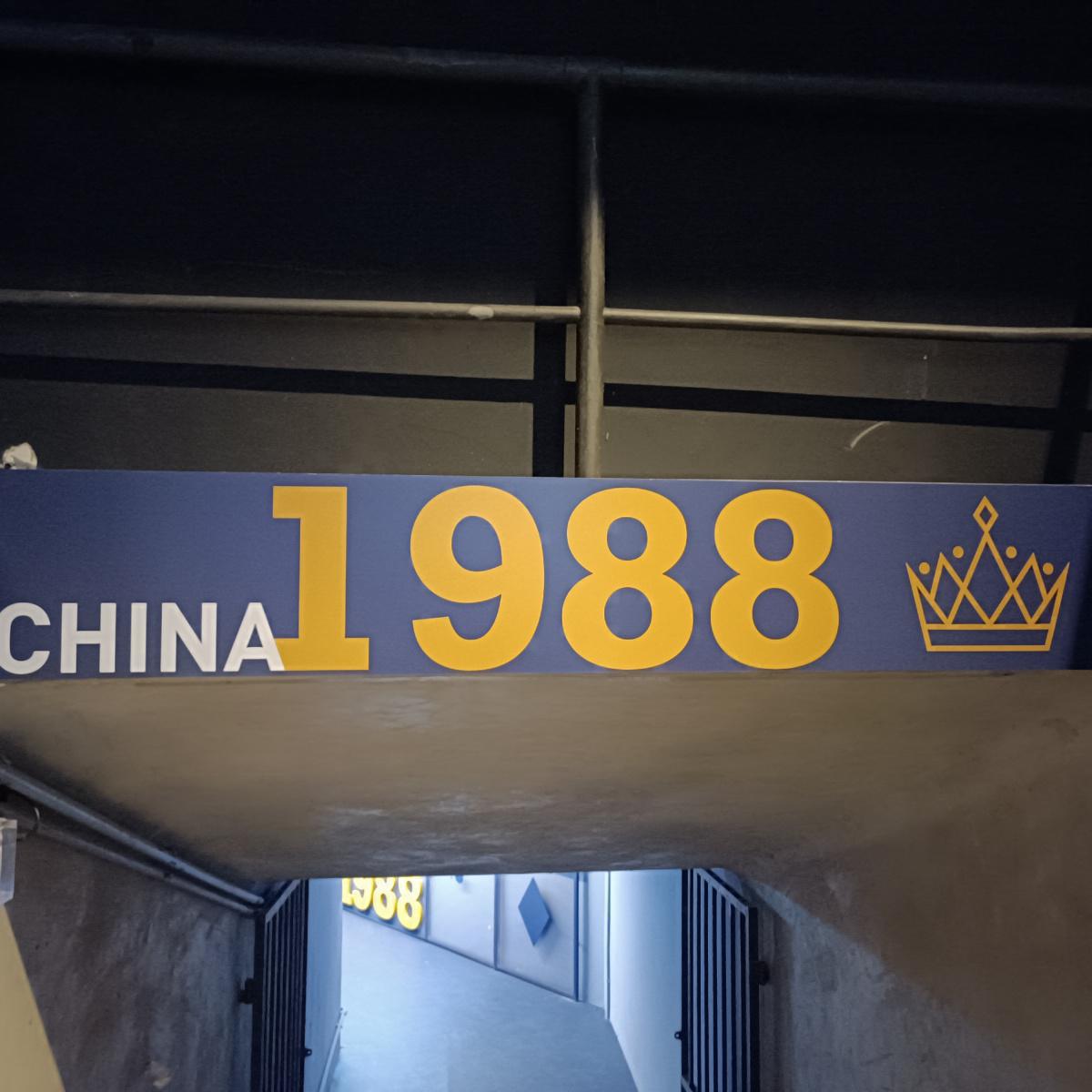Champions:
1st place: Norway; 2nd place: Sweden; 3rd place: Brazil
Pioneering Queens
Real and Official: an experimental FIFA World Cup
Women's football was growing, gaining practitioners and clubs around the world. Some teams organized regional and “mundialitos” without FIFA support, but these competitions no longer satisfied the desire to legitimize the sport. The Women's World Cup needed to happen, whether it was a top priority or not. In 1988, FIFA organized the Experimental Women's World Football Tournament, an unconvincing and low-investment bet. In opposition to this spirit, the teams from the 12 countries participated in a “heart-exploding” atmosphere: improvisation was counterbalanced by a lot of passion for the sport.
For the first time, women's national teams competed in an official FIFA championship — a historic milestone witnessed by the Chinese public, which came excitedly to the stadiums. Coverage by the international press was modest and, in Brazil, only one reporter followed the players' journeys on Jornal dos Sports. Claudia Jacobs was still an intern and, thanks to her, there are photographic records of our pioneering selection.
BOX
In organizing the tournament, the teams had to deal with the same prejudice that kept women away from football for decades: disbelief in their physical condition to be able to practice it. Some considered replacing the traditional ball (No. 5) by a smaller one (No. 4), indicated for practitioners from 8 to 12 years old. Idea dismissed, and the players did not escape paternalism and were forced to play matches lasting only 80 minutes. The measure was extended to the following Cup.
Acknowledgments:
1) Brazil finishes in 3rd place, in a stadium packed with 35,000 people
2) Cebola (striker) and Roseli (striker) in the All Star Team
History:
Roseli
Roseli de Belo was part of the attack of the Brazilian National Team in the 1988 Experimental Tournament and stood out. Scorer of important goals, the São Paulo native was selected for the All Star Team, the “selection” of the tournament, with the best players in each position. Roseli, who started her career at Juventus, in São Paulo, showed her class where structure was lacking: the women played the tournament with spare uniforms from the men's team and hand-sewed adjustments to improve their fit. In addition, they had to wash the material themselves, in the shower. Roseli played — and shone — in the national team until 2004, accompanying the renewal of the athletes and scoring unforgettable goals. One of them was the third of the match against Australia in 1995: a “painting” that began with a beautiful flick, immortalized by Luciano do Valle's moving narration.
Highlight:
Pia Sundhage (SWE)
Sweden's Pia Sundhage had her first global appearance in 1988. Years later, she would become coach of the US, Swedish and, since 2019, Brazil.
Curiosities
Australian Moya Dodd and her teammates paid $850 to participate in the tournament. The amount covered tickets, warm clothes and equipment.
Brazil broke the Norwegians' 28-match unbeaten streak.
Audios
Suzana Cavalheiro — it was inspiration, the will to win, to keep going: in the last game, we were short of legs
Lucia Feitosa — the crowd full of Chinese girls exploded when we dribbled, they had never seen a woman do that
Fia — they only had rice, egg and pasta, they lost a lot of weight, as they did not eat Chinese food
Marisa — the captain's responsibility was greater at that time, any problem that arose was to be resolved by the captain
Claudia — success of the Brazilian team in China, they had never seen black people, they were playing “Escrava Isaura” in Chinese, first experience ever
Video
The 1988 competition was not televised in Brazil. In the video, unpublished excerpts from the matches of the Brazilian team against Australia, Norway, China and Holland.
Subtitles
Caption posed photo
First line, from left to right: Marisa, Elane, Lucia, Simone, Flordelis, Lica and Cebola. Second line: Sissi, Fanta, Márcia Honório, Suzana Cavalheiro, Sandra, Roseli, Michael Jackson, Pelezinha and Russa.
Telegram
Telegram calling Márcia Honório to the Brazilian national team in the 1988 Experimental Tournament.
Pia Sundhage
Pia Sundhage had her first global appearance as a Sweden national team player in 1988. Years later, she would become coach of the US, Swedish and, since 2019, Brazil.
Jornal dos Sports
In the press
In important, albeit modest, coverage, Jornal dos Sports brings details of the matches of the Brazilian national team, in articles signed by Cláudia Silva Jacobs (who, at the time, signed as Cláudia da Silva). As the report about the final shows, Brazil was pointed out as the revelation of the tournament.
Audio
Brief by Cláudia Silva Jacobs about her experience as a journalist in the Experimental Tournament. Duration: 2min42s
Placar
Report from the sports magazine Placar brings expectations for the tournament and the preparation of Brazilian athletes. Although it reinforces certain stereotypes, the report has the merit of presenting the players.
Suzana, Lúcia, Fia and Marisa audios – same tablet
Brief by Suzana Cavalheiro about the team's physical conditioning. Duration: 24s
Brief by Maria Lúcia Alves Feitosa commenting on the
cheering crowd. Duration: 48s
Brief by Caju (Marisa Pires) about her attributions and leadership as
team captain. Duration: 42s
Backstage photos
Backstage photographs of Brazil's participation in the Tournament, produced by journalist Cláudia Silva Jacobs and player Márcia Honório.


